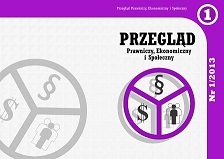Pozycja Julianny Twerskiej w Wielkim Księstwie Litewskim w latach 1377-1382. Próba charakterystyki problemu.
The position of Julianna Twerska in The Grand Duchy of Lithuania in 1377-1382. Attempt to characterize the problem
Author(s): Krzysztof OsińskiSubject(s): History
Published by: Wielkopolska Rada Młodzieży
Summary/Abstract: This article discusses the position and role of JuliannaTwerska - mother of the king of Poland WladyslawJagiello. This matter is quite important, because it has an influence on most of decissions undertaken by the young lithuanian hospodar after the embrance of the Vilinian throne in 1377 after the death of his father Olgierd. (Nontheless the border date – 1382 - is the end of the civil war in Lithuania between young Jagiello and his parental uncle Kiejstut. To thisdaythere is a discussion over the Julianna’s role in shaping her son and also over her influence on the manorvilinian’sforeignpolitics.However we should notice that Julianna appeared onthe pages of history mostly in its critical moments and she was usually surrounded by important people from Jagiello’s environment. This text is divided internally into two parts, which may not be clearly distinguished, but they help to movefreely in the text. The first part serves as a review of the research, mostly of the historiography of interwar period during which the outstanding historians published theirs own research results(e.g. Antoni Prochaska, Henryk Łowmiański, Oskar Halecki, Stanisław Smolka). Although the portrayal of Joanna Twerska wouldn’t be complete without the presentation of the newest historiography’s opinion about this subject(e.g. JarosławNikodem, Jan Tęgowski), which queries many old theories which were consider to be sure.)Then, the second part serves as an attempt to discuss with an already presented positions. My views are based on a document’s critical editions as well as on the achievements of other historians. This text does not cover the whole problem, this is more like a contribution to the discussion over the usual and unquestionable views of some Lithuanian’s 19th century history researchers.
Journal: Przegląd prawniczy ekonomiczny i społeczny
- Issue Year: 2013
- Issue No: 1
- Page Range: 80-87
- Page Count: 8
- Language: Polish

